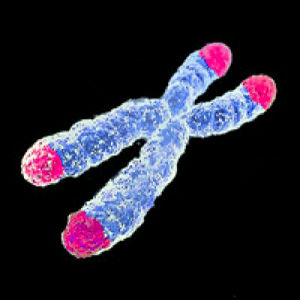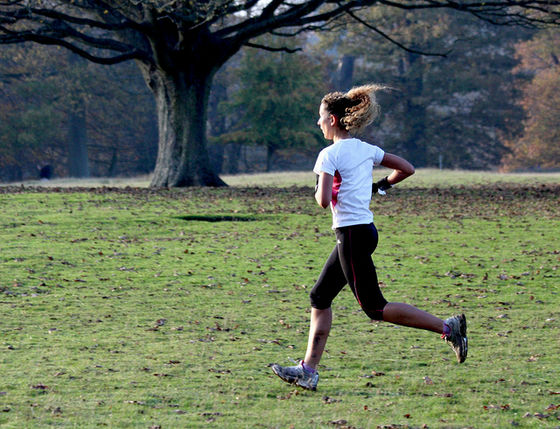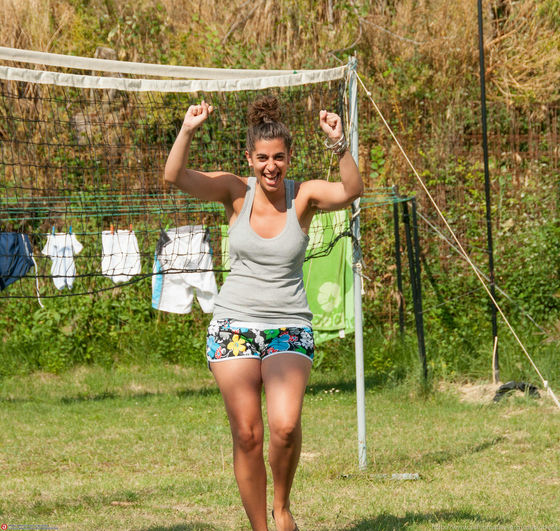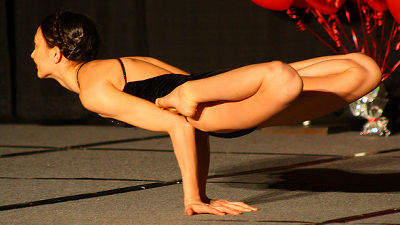Can exercise retard aging?

BySteven Pisano
"Protein in young blood has the power to revive aged cells"Or"When drinking 500 ml of carbonated drink every day, aging progresses as smokers do"There are many studies on aging, such as" It may be because many people think that they want to live a little even a little ". The latest research which investigated the relationship between such "aging" and "exercise" was announced, and it turned out that a wide variety of exercise "has the effect of delaying cell aging".
Movement-Based Behaviors and Leukocyte Telomere Length among US Adults. - PubMed - NCBI
http://www.ncbi.nlm.nih.gov/pubmed/25970659
Does Exercise Slow the Aging Process? - The New York Times
http://well.blogs.nytimes.com/2015/10/28/does-exercise-slow-the-aging-process/
In the first place it is very difficult to determine the age of cells that make up the human body, which seems to be due to biological, chronological age and cell age rarely coinciding. It seems that cells are often relatively young than age, but as the age of the cell increases, its function gradually becomes late and unstable. Currently, many scientists use the method "measure cell telomere length" when measuring biological age. This method measures "how much cells work" and is not intended to measure "how old are the cells actually?", But "how much cells can function in the future?" It is a perfect scale to measure.
The length is measured in this way "Telomere"It is thought that it is like a small cap on the edge of DNA and is responsible for protecting DNA during cell division and cell replication. As cells tend to aging, telomeres become shorter with nature, so the shorter this is, the more cells are judged to be older.

ByAJC ajcann.wordpress.com
This process of telomere shortening can also be accelerated by obesity, smoking, insomnia, diabetes and so on. And according to the latest scientific research, "It is possible that exercise can slow telomere's rate of decay".
Previous studies have revealed that athletes have a long telomere, compared with people who just sit at the same age. However, as these studies were conducted only in a relatively narrow range, it was unclear how long the telomere length would change in the case of people performing different exercises at different ages.
Medicine & Science in Sports & ExerciseIn the latest study published in December 2015, a study on the relationship between exercise and telomere in a wider range was done. Specifically, in the research, a health survey conducted on tens of thousands of adults led by the US governmentNational Health and Nutrition Examination SurveyBased on the vast amount of data collected at NHNES, we are investigating "length of telomeres in white blood cells" measured from blood samples and "exercise habits" answered by questionnaire.
In the research, we survey data of 6,500 people from NHNES data. The age of the targeted person ranged from 20 years old to 84 years old, and they are classified into multiple groups by "how much exercise is done". In grouping, in the past month, did you "did weight training?" "Did you do moderate exercise like walking?" "Did you actively exercise like running?" "Walking to work place and school Were you riding a bicycle or not? "Based on answers to the four questions. When examining the length of telomere for each group, a clear relationship has been found between exercise and telomere length.

ByGareth Williams
According to the survey, the group of people who do only one of the four exercises seems to be 3% less likely to have extremely short telomeres than the group without any exercise (group 0). Likewise, the group that replied that two of the four exercises are doing it is 24% less likely to have telomeres that are extremely shorter than Group 0, and the group that answered that they are doing three are group The proportion of people who have extremely short telomere than 0 is 29% less, and the group that replied that they are doing all 4 has a telomere that is extremely shorter than group 0, which is 59% less Pattern.
From this result it was found that those who answered "YES" to all four exercise questions clearly reduced the risk of abnormally short telomeres. In addition, surveys show that this tendency was more conspicuous in the elderly aged 40 to 65 years old.
One of the researchers involved in the research has Jeremy Loenneke of the University of Mississippi who won the Nobel Prize in 2009 discovering the molecular nature of telomere. Paul Loprinzi, who co-authored the paper with Mr. Loenneke, points out that this discovery is "just finding the relationship." In other words, it is unknown whether the decrease in telomere due to exercise is delayed, and it is simply "It is clear that the telomere of the exercising person is long".

ByMario Antonio Pena Zapatería
Moreover, since research has not been able to investigate up to the "amount" of exercise, "How much exercise quantity is best for delaying telomere reduction" remains unknown. Loprinzi commented "Exercise is good for the cell".
Related Posts:
in Science, Posted by logu_ii







